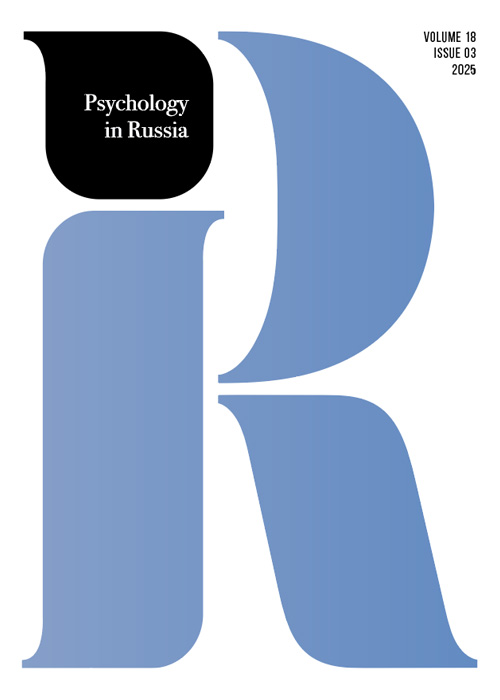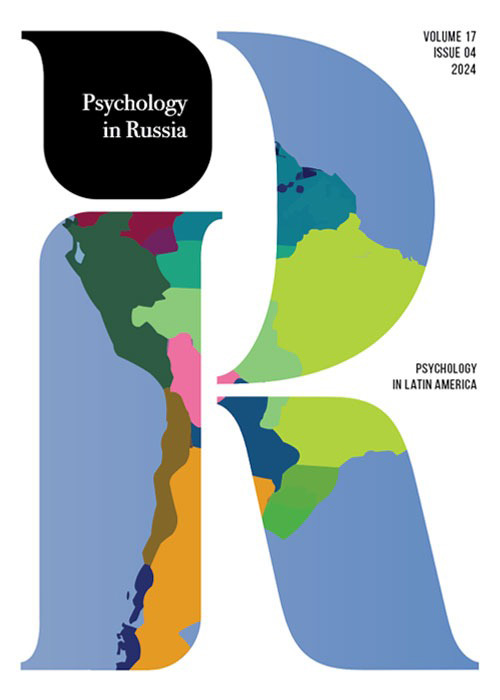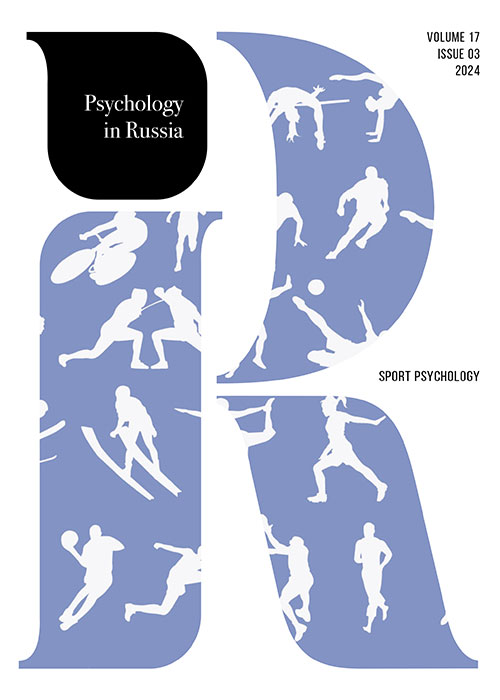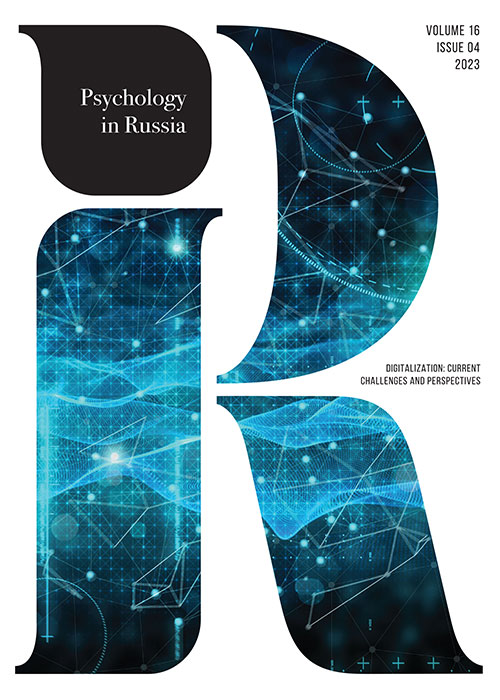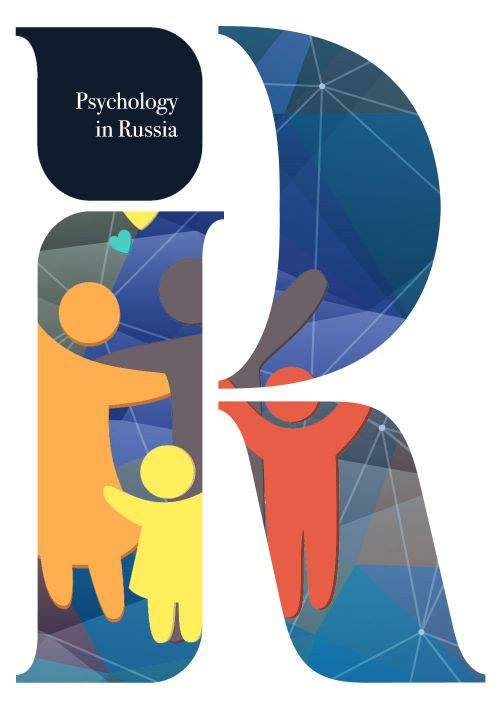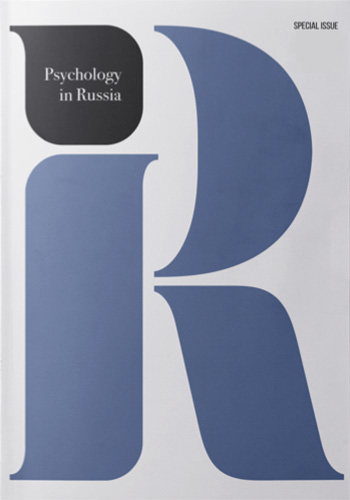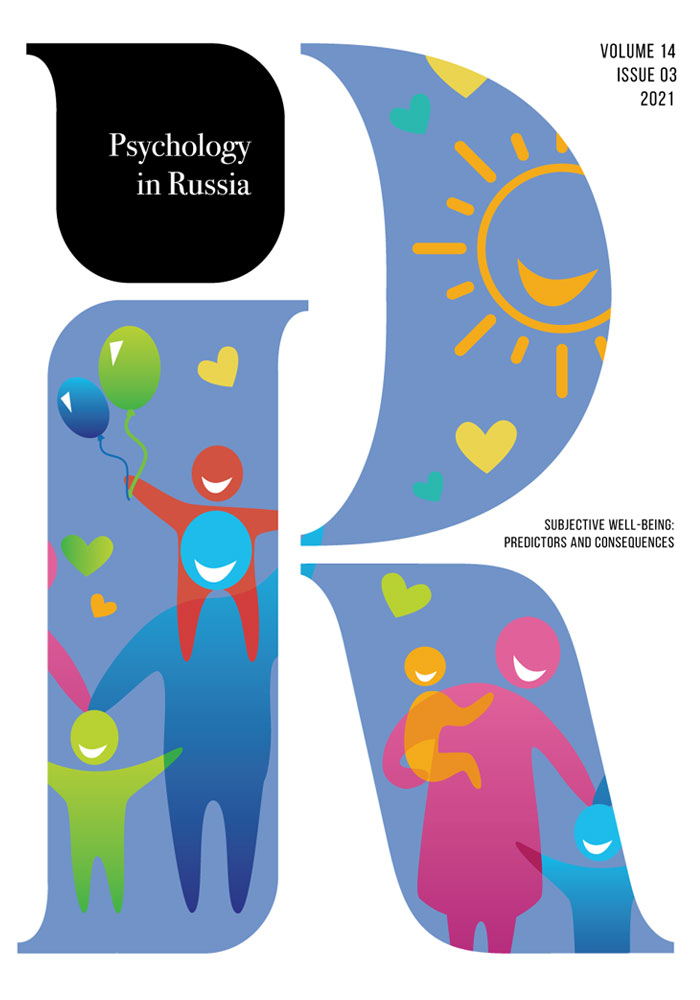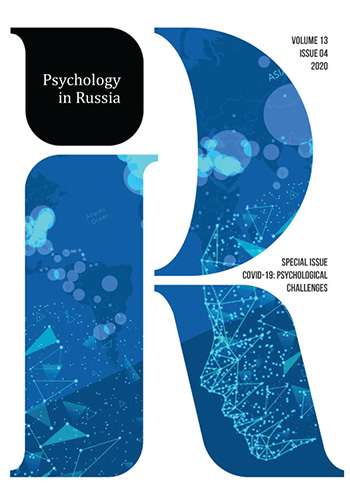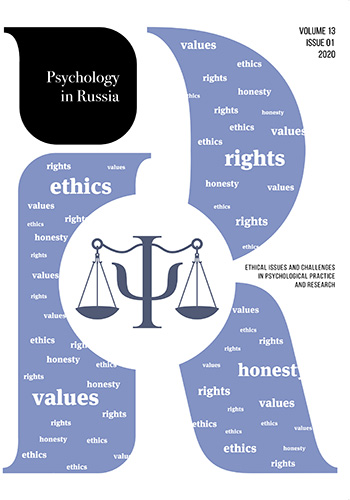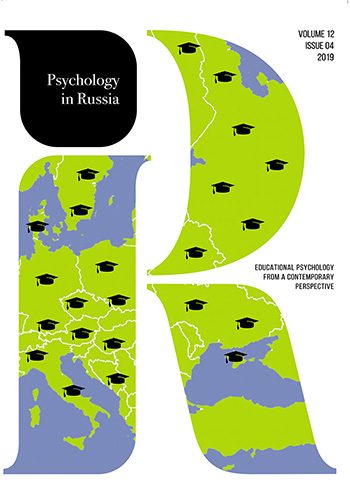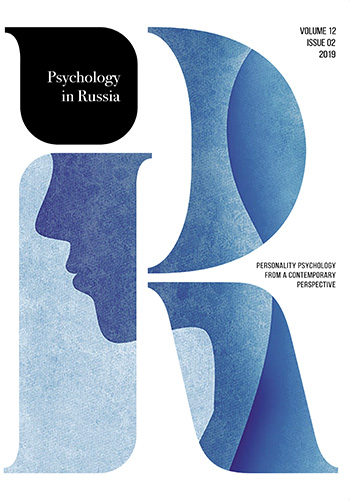 Psychology In Russia
Psychology In Russia
-
Using PlayWorld to Promote Narrative Development: Evidence from a Double-blind Control Experiment
-
Does Quantity Matter? How Extracurricular Activities Affect Working Memory Development Among 5–7-Year-Old Children
-
Validity and Reliability of the ‘Difficulties in Emotion Regulation Scale' – 16-Item Version (DERS-16) – with University Students in EcuadorPDF HTML4561“ CITE
Viteri-Miranda, V., Regatto-Bonifaz, J., Moreta-Herrera, R., Jiménez-Borja, M., Jiménez-Mosquera, C.-J. (2025). Validity and Reliability of the ‘Difficulties in Emotion Regulation Scale' – 16-Item Version (DERS-16) – with University Students in Ecuador, Psychology in Russia: State of the Art, 18(3), 108–123. DOI: 10.11621/pir.2025.0307
copied
-
Effects of Machiavellianism on Cyberbullying Perpetration: Serial Mediating Role of Perceived Social Support and Problematic Internet Use Among University StudentsPDF HTML2195“ CITE
Javed, M., Zubair, A., Niazi, N.B., Aslam, I. (2025). Effects of Machiavellianism on Cyberbullying Perpetration: Serial Mediating Role of Perceived Social Support and Problematic Internet Use Among University Students, Psychology in Russia: State of the Art, 18(3), 87–107. DOI: 10.11621/pir.2025.0306
copied
-
Intimate Partner Violence: An Overview of the Existing Theories, Conceptual Frameworks, and Definitions
-
Multivariable Objects for Stimulation of Young Children's Combinatorial Experimentation and Causal-Experimental Thought
-
Assimilation or integration: Similarities and differences between acculturation attitudes of migrants from Central Asia and Russians in Central Russia
-
Comparative analysis of Canadian multiculturalism policy and the multiculturalism policies of other countries
-
Technologies of Virtual Reality in the Context of WorldWide and Russian Psychology: Methodology, Comparison with Traditional Methods, Achievements and PerspectievesPDF HTML43313“ CITE
Zinchenko, Yu.P., Menshikova, G.Ya., Bayakovsky, Yu.M., Chernorizov, A.M., Voiskounsky, A.E. (2010). Technologies of Virtual Reality in the Context of WorldWide and Russian Psychology: Methodology, Comparison with Traditional Methods, Achievements and Perspectives. Psychology in Russia: State of the Art, 3, 12-45.
copied
-
Nonclassical and Postnonclassical epistemology in Lev Vygotsky’s cultural-historical approach to clinical psychology
-
Person-centered approaches in medicine: clinical tasks, psychological paradigms, and postnonclassic perspective
-
In search of the “I”: Neuropsychology of lateralized thinking meets Dynamic Causal Modeling
‘’Psychology in Russia: State of the Art’’ welcomes original research on all aspects of general psychology including cognitive, clinical, developmental, social, neuropsychology, psychophysiology, psychology of labor and ergonomics, and methodology of psychological science. To submit an article, please register.
read more
We invite new reviewers to our journal “Psychology in Russia: State of the Art”.
If you have expertise in psychology and behavioral science research, we welcome you in our reviewers’ team. Please, provide us with your CV, preferred field(s) of review, and any comments on convenient terms of contacts to psychologyinrussia@gmail.com
We do not offer financial compensations but issue annual official reports about reviewers’ impact as well as special page with acknowledgements of reviewers’ work in online and print versions of the journal.
“Psychology in Russia: State of the Art” is indexed in Scopus and Web of Science (Emerging Sources Citation Index). We adhere to practice of double-blind peer-review, and process the manuscripts according to American Psychological Association standards.
Elsevier has completed the calculation of 2023 citation metrics for scientific periodicals.
According to the rating results, the journal Psychology in Russia: State of the Art entered the second quartile in “Psychology” category and became the only Russian psychological journal that was awarded such a high evaluation.
“The fact that the journal’s status is growing indicates the steady interest of foreign colleagues in the Russian psychological school, as well as the high standards of the manuscript preparation. Just recently, we became the first Russian psychological journal indexed in PubMed, and now our indicators in the Scopus database have also increased,” noted the Editor-in-Chief of the Journal, Dean of the Faculty of Psychology of Lomonosov Moscow State University, Director of the Federal Scientific Center for Psychological and Interdisciplinary Research, President of the Russian Psychological Society, Full Member of the Russian Academy of Education, Professor Yury Zinchenko.
The quarterly journal Psychology in Russia: State of the Art is published by the Faculty of Psychology of Lomonosov Moscow State University together with the Russian Psychological Society since 2008. The journal focuses on the research within the framework of Russian activity theory and cultural-historical psychology, as well as on original research in other psychological areas. The journal is indexed in prestigious international databases, including PubMed, Scopus, Web of Science and many others. The journal's authors list is comprised of famous scientists from more than 30 countries.
Dear colleagues!
We are glad to inform you that the new issue of the journal "Psychology in Russia: State of the Art" - 17(2), 2024 - was released. You can access the full-text articles here:
https://psychologyinrussia.com/volumes/issues/issue/volume-17-2-2024/
